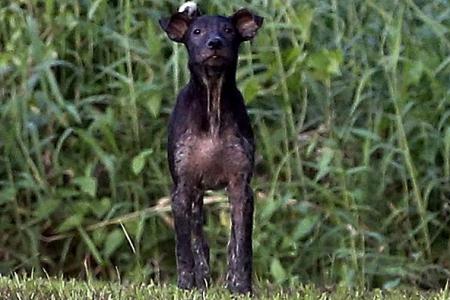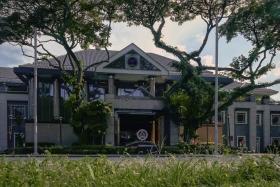Rehoming dogs is still main challenge
Fewer than half of dogs in shelters get adopted
Although regulations and attitudes have shifted to be more welcoming towards stray dog adoption, the rehoming of stray dogs is still a challenge for many animal welfare groups (AWGs) in Singapore.
President of Action for Singapore Dogs Ricky Yeo said: "Only about 30 per cent to 40 per cent of the dogs that come through us every year get adopted."
As for the Animal Lovers League, co-founder Cathy Strong said only 20 per cent of dogs in their shelter get new homes.
Yet, rehoming is still the top option for many shelters in Singapore. And the Agri-Food and Veterinary Authority of Singapore (AVA) is in line with that strategy.
The AVA announced on Thursday that it will be rolling out a five-year trap-neuter-release-manage programme next year to manage the stray dog population in Singapore, the first scheme of its sort for stray dogs on a national level.
The programme aims to sterilise 70 per cent of the stray dog population and rehome as many of them as possible.
Yet, rehoming may be a long shot for many of these dogs.
Dogs that are big, older, have some form of disability or illnesses are notoriously difficult to rehome, welfare groups said.
Factors such as appearancematter as well.
Mr Yeo said: "Black dogs tend to be discriminated against... And dogs with one or two white paws are difficult to rehome as well as they remind people of the Chinese funeral custom of wearing white socks."
PROJECT ADORE
Despite an adoption programme called Project Adore that allows those living in HDB flats to adopt strays up to 15kg and 50cm in height, dogs larger than that still cannot be accepted.
Dogs that are not successfully rehomed will be released to suitable locations, said AVA.
AWGs said these dogs will most likely be released back to the areas where they were found.
Co-founder of Causes for Animals Singapore Christine Bernadette said: "Dogs are very territorial animals.
"They might not survive in a new environment where there are already existing packs of dogs or a lack of feeders."
However, alternative arrangements would need to be made for dogs found at areas that are deemed unsafe or slated for redevelopment, welfare groups said. These include retraining, fostering or putting them in shelters.
The temperament of the dogs also matters when it comes to deciding whether to release them back into their old area.
AVA told TNP yesterday: "For aggressive dogs, checks will be done with AWGs to determine if they are prepared to keep the dogs in their shelters or determine if they are suitable for retraining."
As animal shelters in Singapore have been full for years due to space constraints, AWGs still hope that more people will adopt stray dogs.
Mr Yeo explained: "Not everyone will welcome a stray into their homes so that cultural bias is the hardest to combat.
"But we have seen improvements in younger people, those in their 20s or 30s, who are more open to adoptions."
Get The New Paper on your phone with the free TNP app. Download from the Apple App Store or Google Play Store now



